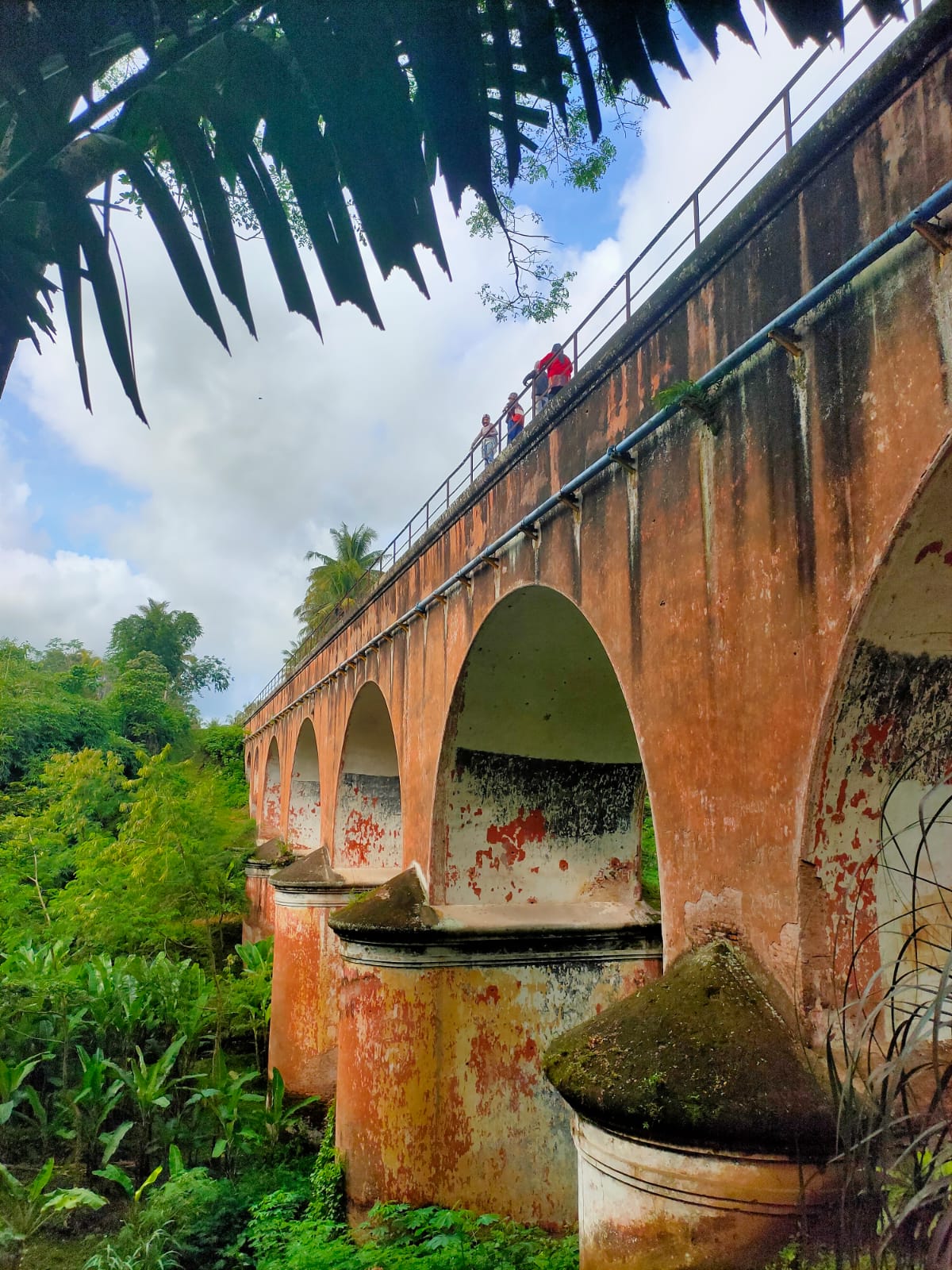The Leap
Down, down the stairs to the five pillars of pronounced architecture,
Five entrances into the forgotten yore, a bridge gutter, the rippling gore.
4. 3. 8. 3. 0. days passed, wind hushed, sins unconfessed, ‘Tis bridge’s structure.
There, there the Plaintive Cuckoo lamented immortal spirit marred and impaired;
Walked forward, stepped towards a mortal she, it breached time, it whispered—
– “Come sleep and take a leap.”
Deep into the Night’s Plutonian mist, she fell asleep; the gutter’s mud gushed,
The floor she laid was bare, moldy, musty, the midnight sound rebounded;
Waterbrug te Boeloelawang bij 1904, the spirit preached and preached…preached.
The mortal woke a shapeless wake, a form unforming, between two worlds—same place.
Remember no nepenthe but an absolution after a penance, night fell, she rose. – Quoth the spirit, “Come take a leap.”
Startled in a quietude passivity, her placid bust, barren soul, she spoke
In aeolian gust, “Angel,” said she, the spirit sushed. “Thou art death inescapable,
Walk I in the depth of night, whole-heartedly hopped myself on to thy’s canoe.”
“Hush Dear One, death is mine, life is all yours,” the spirit said, “For the past is mine,
The present is yours. For I’m a bread crumb, spared left to confess, now is the time—
– Quoth the spirit, “Now take a leap.”
The water washed crime scene in the gutter’s lane, but never the grief, the sins.
The sugar cane and paddies trees, plantations, farms, industries— the Netherlands Indies;
Told thee the mortal, that unsang yore from a bridge which pillars were made of bones,
So the water could travel far reaching the belly of De Rijke, Groskam & Co, the firms.
“Time is a lonely silent maiden,” said the mortal she, “For sons she traded, sugar she gets.”
– Quoth the spirit, “Leap more.”
“In my bosom’s core, agony is catching. I speak no syllable but ones with sores;
Three souls, five souls a week, few were pregnant, deep in impenetrable bushes
Of sugar cane, the angels took infants with no names, and the mothers,
The sons, the fathers mistook their presences in common farm labor struggles,
They mistook death as regular pains. Chop…chop the sounds of their axes.”
– Quoth the spirit, “They’ll leap.”
“The current in the gutter grows higher, the seraphim, never they take souls;
Just like an epidemic when summer ends, hundred souls a day, in Java—
Hundred souls a day—or even more. “‘Tis the grace and glory in East Indies,”
The Governor-General’s hymn echoed across the seven seas;
Shall he know, some quite wandering souls refuse to rest in peace.”
– Quoth she, “Glory won’t leap.”
“Eternally, eternally, I have all the leisure to suffer,” murmured the spirit to she.
“Deaths, like a flock of cranes pass by this very bridge, marching to the
Dilated moon shine. I know some—I employed some—I killed many;
He who dipped his forehead to the earth’s chest, begging, calling me Master, the
Other he who traded his daughter to please the thirst of mine—thirst of mine. – Quoth the spirit, “That leap of mine.”
“Tell me, what thy lowly name is on the yore, rippling gore, the gutter’s fame?”
Asked she, “Though pale, singing dirges blue, breathing the breath of a grave’s fume,
Though bearing the pains all mankind—victims bore, thou art a bearer of a lore,
I sleep and leap—and leap more, down to your essence’s core, events’ shore.
Swore Thee no angel but the one who stores—I am no dead man’s chore.- Quoth she, “I leap no more.”
Grim and gaunt the spirit beguiled, it was—he was—master of her kind.
“I made myself heard and loud,” answered the spirit, “The unseen is unheard;
No more, the unseen have confessed. I am the Governor-General, the butcher,
A master a brief once and a sinner for evermore, in eternal tempest tossed
And clogged, under the five pillars of forgotten yore, a manslaughter;
– Quoth the spirit, “That leap of mine.”
*This poem is inspired by the construction of Waterbrug te Boeloelawang bij Malang, East Java, Indonesia, 1904.




